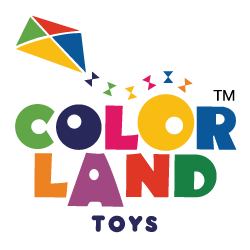How Parenting Styles Can Influence a Child's Play and Development

Parenting is a life-changing experience full of love, hardships, and numerous learning opportunities. Our parenting style has a significant impact on our children's development, molding their beliefs, behaviours, and overall well-being. Parenting methods influence a child's general development, including their play behaviours and experiences. Understanding how different parenting styles influence a child's play can provide useful insights into supporting healthy development and providing a happy play environment. Let's talk about many aspects of parenting and how to create a supportive atmosphere for your child.
- Authoritative Parenting: Nurturing Play and Development - Examine how authoritative parenting styles, with a balance of warmth, guidance, and expectations, can positively impact a child's play. Discuss the benefits of fostering a supportive and nurturing play environment. Highlight ways to encourage exploration, problem-solving, and self-regulation through play.
- Authoritarian Parenting: The Impact on Play Development - Explore how authoritarian parenting styles, characterized by strict rules and discipline, can influence a child's play. Discuss the potential effects on a child's creativity, independence, and decision-making skills. Offer strategies for incorporating autonomy and imagination into play while maintaining structure.
- Permissive Parenting: Freedom and Boundaries in Play - Discuss the influence of permissive parenting styles, characterized by minimal rules and boundaries, on a child's play development. Explore potential challenges associated with permissive parenting and its impact on a child's self-control and social skills. Offer suggestions for finding a balance between freedom and guidance in play experiences.
- Uninvolved Parenting: Effects on Play and Development - Examine how uninvolved parenting styles, characterized by neglect or lack of emotional involvement, can impact a child's play experiences. Discuss the potential consequences for a child's social skills, imagination, and emotional well-being. Provide strategies for promoting engagement and positive play experiences for uninvolved parents.
- The Role of Parenting Styles in Building Essential Skills through Play - Explore how different parenting styles can influence a child's development of cognitive, social, emotional, and physical skills through play. Discuss the importance of a balanced parenting approach that combines structure, support, and freedom in play. Highlight the significance of recognizing and nurturing a child's individual needs and temperament during playtime.
- Practical Tips for Aligning Parenting Styles with Play Development - Offer practical suggestions for parents on how to adapt their parenting styles to enhance their child's play experiences. Emphasize the importance of open communication, active listening, and responsiveness during playtime. Provide ideas for creating a nurturing and stimulating play environment that aligns with the child's interests and abilities.
Parenting methods have a significant impact on a child's play and general development. Parents can make conscious choices to build a pleasant and meaningful play environment that nurtures their child's growth, creativity, and well-being by understanding the influence of different parenting styles. Parenting is a transformative adventure filled with love, hardships, and infinite learning opportunities. The way we parent has a significant impact on our children's development, molding their beliefs, behaviours, and overall well-being.
Toys that children play with can have a big impact on their development and overall well-being. When analyzing the impact of parenting styles on a child's play and development, it is critical to investigate how the selection of toys, such as those offered by Colorland Toys, might correspond with various parenting techniques.
- Supporting Imaginative Play: Explore how toys provide a diverse range of options that encourage imaginative and creative play. Discuss how parents can utilize kids toys to foster storytelling, role-playing, and problem-solving skills in their children. Highlight specific toys or product lines from Colorland that promote imaginative play.
- Enhancing Learning and Cognitive Development: Discuss how educational toys offer educational and age-appropriate options that support cognitive development. Explore how different parenting styles can utilize different toys to stimulate curiosity, critical thinking, and problem-solving abilities in children. Highlight specific toys or product lines from Colorland that focus on educational aspects.
- Promoting Social Skills and Cooperative Play: Examine how certain toys for different ages can facilitate social interaction and cooperative play among children. Discuss how parents can encourage sharing, turn-taking, and collaboration through the use of kids toys. Highlight specific toys or product lines will promote social skills development.
- Fostering Emotional Expression and Well-being: Explore how our toys can serve as tools for emotional expression and support children's emotional well-being. Discuss how parents can use specific toys to encourage self-expression, empathy, and emotional regulation. Highlight specific toys or product lines that focus on emotional development.
- Aligning with Different Parenting Styles: Discuss how plaything offers a wide range of options that can align with various parenting styles, such as authoritarian, authoritative, permissive, or uninvolved. Explore how different parenting styles can utilize specific games activities to reinforce their parenting approach and values.
- Nurturing Parent-Child Bond and Playful Connection: Discuss the role of play items in fostering a strong parent-child bond through shared play experiences. Explore how parents can use Colorland Toys to create joyful and meaningful moments of connection with their children. Highlight specific toys or product lines that encourage interactive and engaging play between parents and children.
Toys fosters the development of social skills such as sharing and teamwork via interactive and cooperative play. Furthermore, different games and puzzles can aid in the development of emotional expressiveness and well-being. Certain toys can help children express their feelings and build empathy. They can also deepen the parent-child bond and provide significant moments of connection through joint play experiences. Toys that connect with their ideals and encourage their parenting style might be chosen by parents to enhance their child's play and development. Parents can foster a compassionate and supportive play environment for their children by knowing the purpose of indoor and outdoor toys and selecting toys with care.






 +971 50 150 4446
+971 50 150 4446